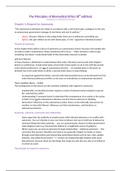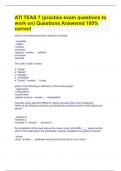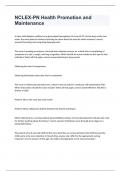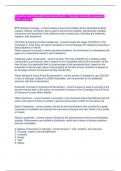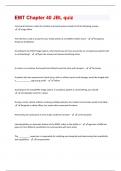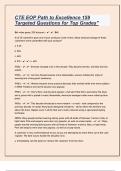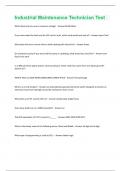Samenvatting
Summary of The principles of biomedical ethics chapter 4: Respect for autonomy
- Instelling
- Erasmus Universiteit Rotterdam (EUR)
A summary of Chapter 4: Respect for autonomy Contains definitions as written in the book, often explicated/or debated in the summary or annotations. (There also is a summary containing this chapter + chapters 1/5/6/7)
[Meer zien]
